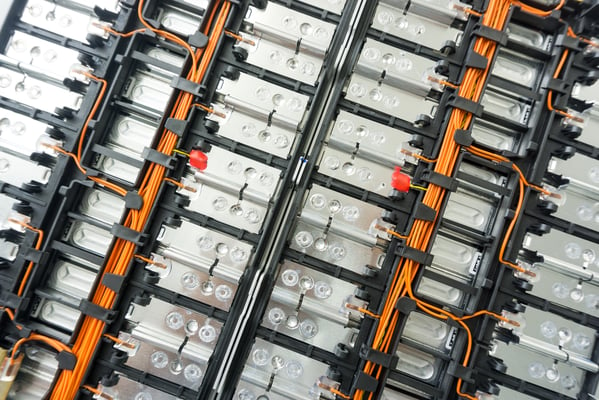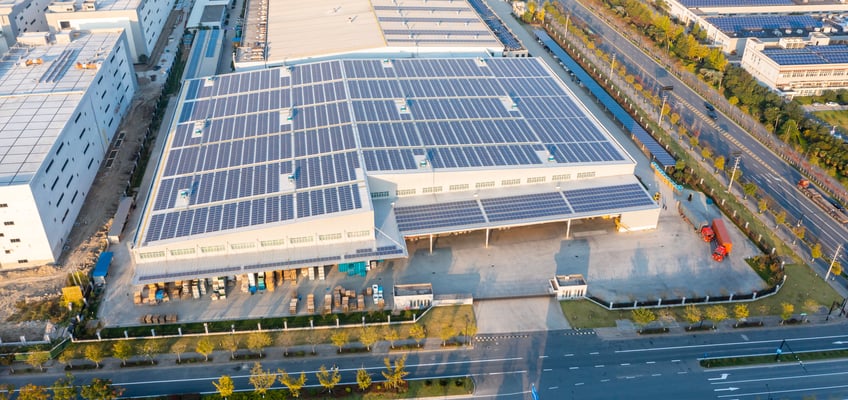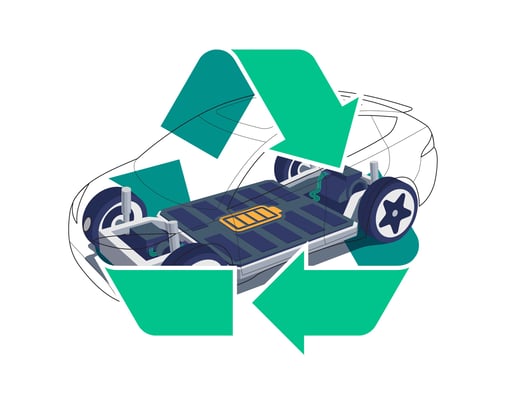-1.jpg?width=1000&name=Blogg%20-%20standard%20(1)-1.jpg)
How will we deal with all the EV batteries that can no longer be used in vehicles in the future?
Along the way, in the EV revolution, one question remains to answer:
What happens to the EV batteries once they wear out?
Already in 2030, there are predictions of 23 times more EVs on the roads than today. There is a fear that the rapidly increasing amounts of batteries will end up in a landfill, and these fears are well grounded, as each battery weighs close to 500 kilos and represents a lot of potentially toxic fumes.
The life of an EV battery
An EV battery pack results from intricate engineering transforming lithium and electrons into energy. As long as the car keeps going, it is environmentally friendly.
But then what?
The life of an EV battery is usually measured in the number of times the battery is fully charged and discharged. As with other lithium-ion cell-powered devices, the charge the battery can hold will decrease as the battery degrades over time.
EV batteries lose approximately 2 percent of range per year. The degradation of EV batteries is directly related to their use. The harder the use, the faster the degradation, and when the driving range is noticeably reduced, the EV battery is no longer adequate for car use.
EV batteries consist of individual lithium-ion cells, each of which can store a certain amount of energy. Since the battery cells are constructed as flat packages on top of each other, it is, unfortunately, impossible to replace single cells.
Is recycling the best thing?
The question has long been how to recycle the millions of electric vehicle (EV) batteries manufacturers expect to produce over the next few decades.
Governments around the world have already started to require some level of recycling.
Batteries differ widely in chemistry and construction, making efficient recycling systems challenging.
Until now, the only and cheapest alternative for battery makers has been to buy freshly mined metals instead of using recycled materials. Innovative new solutions are fortunately in place ten years after the first electric cars rolled out on the roads.
The problem becomes a resource
The worry for most environmentally conscious people is that many EV batteries end up in the scrapyard. Eventually, the cells will release toxins, including heavy metals.
The immature technology for recycling batteries with a low recycling rate and high risk has finally become safer and is constantly improving.
In the future, we will be dependent on recycling to ensure the necessary amounts of materials needed to secure and drive the energy shift from fossil sources to electricity.
While the number of electric cars is increasing, the abundance of EV batteries can be a problem if not handled correctly.
When the second life ends, the minerals in the batteries are still of significant value, such as cobalt, lithium, and nickel. These minerals should, considering the environment, be used to produce new EV batteries or, even better - second-life battery storage solutions like the ones provided by ECO STOR.
The minerals in the batteries are critical to preserve and keep within a circular cycle because we rarely find them in Europe. Battery recycling, in other words, secures Europe's resources to produce future batteries. As the EU states, this will make Europe less dependent on the ever-changing geopolitical situation in the world.
Read more: https://www.eco-stor.com/blog/what-happens-to-ev-batteries-when-they-expire.
ECO STOR'S battery energy storage solution (BESS) makes clean energy available.
The grid is dimensioned to handle peaks in our consumption. BESS ensures cheaper electricity and makes the right amount of energy available at the right time. Effectively storing energy changes the prerequisites for evaluating alternative energy sources, such as solar and wind power.
The possibility of conserving more electricity in a battery energy storage solution will relieve the grid and make a combination of alternative energy sources and electricity from the grid possible.
Battery energy storage solutions are the future
ECO STOR has seen the enormous potential of access to EV batteries and gives a new life to EV batteries that no longer have the capacity needed for car use. It could extend the battery's lifetime as long as 10 to 15 years to serve along with other batteries in a battery energy storage solution (BESS).




